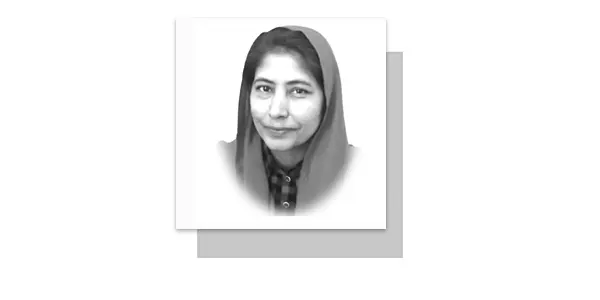PAKISTAN is known as a “hard country”, complex and polarized state- but has resilient people. Pakistani people have potential and capability to deal with the national tragedies and natural calamities as well. Over the past twenty years, they have suffered and sacrificed. The menace of terrorism and extremism badly jeopardized the state and society. The world is astonished that how this society live with the ‘perpetual’ crisis- without homogeneity in the country. Indeed, clash of ‘political’ interests in the country has greatly damaged and divided the people and augmented disappointment, depression and anxiety in society- rising youth is the main component that considers the existing socio-economic and political environment [challenge] unhealthy and not fit for them. However, state’s stakeholders must engage and include the potential and national power, youth in various socio-economic projects and put them on the right tracks.
Pakistan has been experiencing democratic transition since 2008. However, democratic norms and principles are ignored during and after the electoral process. But, statecraft has never been able to manage the state and societal issues which have increased distrust between the state and society. The recent elections are being considered the most controversial elections because the winners and losers are blaming each other for manipulating the elections 2024. Constitutional rights have been denied to a particular segment [party] in the country-thus the sense of deprivation and disparity further distanced the frustrated factions at regional and provincial levels- and these factions have potential to play with the sentiments of annoyed voters and supporters.
Tough the most naïve ‘coalition’ government has been formed to rule the Jinnah’s Pakistan, which needs “rule of law” and good governance- these two elements may bring socio-economic progress in Pakistan. The two old traditional political parties – PML-N, PPP – are sharing power. These parties took many days to agree on power-sharing formula- because these parties failed to receive the required mandate to form the government of their own at the Centre. This is a wakeup call for these political parties to revisit their previous political/ governance performances at provincial and national levels. Certainly, these parties would enjoy the fruits of power in the name of democracy, but election is not the only process to bring them in power and cultivate democracy in the country. Democracy requires: rule of law, accountability, meritocracy, competency, equal opportunities, free media and tolerance. Do we experience or observe these fundamental, democratic conditions in Pakistan? The answer is a big no.
They, indeed, have their own preferences and priorities to accomplish the long-term political objectives to strengthen their parties’ positions and images. How would they restore the distorted image, being the largest parties in parliament, their future policies and their implementation would determine the fate of political future? The performance of the government, at the Centre and in the provinces, according to the democratic norms, may help them in survival and strengthen their parliamentary politics. The political behaviour and performance will determine their political future as well.
In the contemporary Pakistan, political and social construction has completely changed the societal behaviour. There are two factors that have immensely altered the political map and social fabric in the country, one the rising social media and other socio-economic crisis that has badly affected the social and political culture in Pakistan. People are more interested in problem solving government instead of ‘political narrative, party agendas and political promises they made during the election campaign. People want instant remedies of their socio-economic related issues. All chief ministers have taken oath- Punjab, KP, Balochistan and Sindh.
Sindh has welcomed the old experienced face- Murad Ali Shah- and Punjab the largest province of Pakistan, however, will experience with Maryam Nawaz Sharif, who is committed to uplifting the poor people of Punjab and wants corruption-free Punjab. Undoubtedly, Maryam Nawaz Sharif inherited political instinct from her father who ruled this country thrice and also governed as chief minister of Punjab. But the present Punjab is more critical and has multiple challenges for the new chief minister- she needs competent and selfless team to take reasonability for the improvement of governance which is not up to the mark. As compared to the other provinces, Punjab has always played crucial role in Pakistan’s power politics. Punjab is a multi-ethnic province but known as a peaceful and progressive province. Although, the newly elected chief minister has committed to ensuring meritocracy, good governance, health facilities, educational reforms, women empowerment, security, financial help to the young male and female- and eradication of corruption. These are the serious challenges not only in Punjab but in other provinces as well. The aforementioned crisis are the great challenges to political and economic stability in Pakistan- frugality, determination and sincerity are the key complements to bring prosperity in Jinnah’s Pakistan.
—The writer is Assistant Professor, Politics and IR, International Islamic University, Islamabad.
Email: [email protected]
views expressed are writer’s own.










